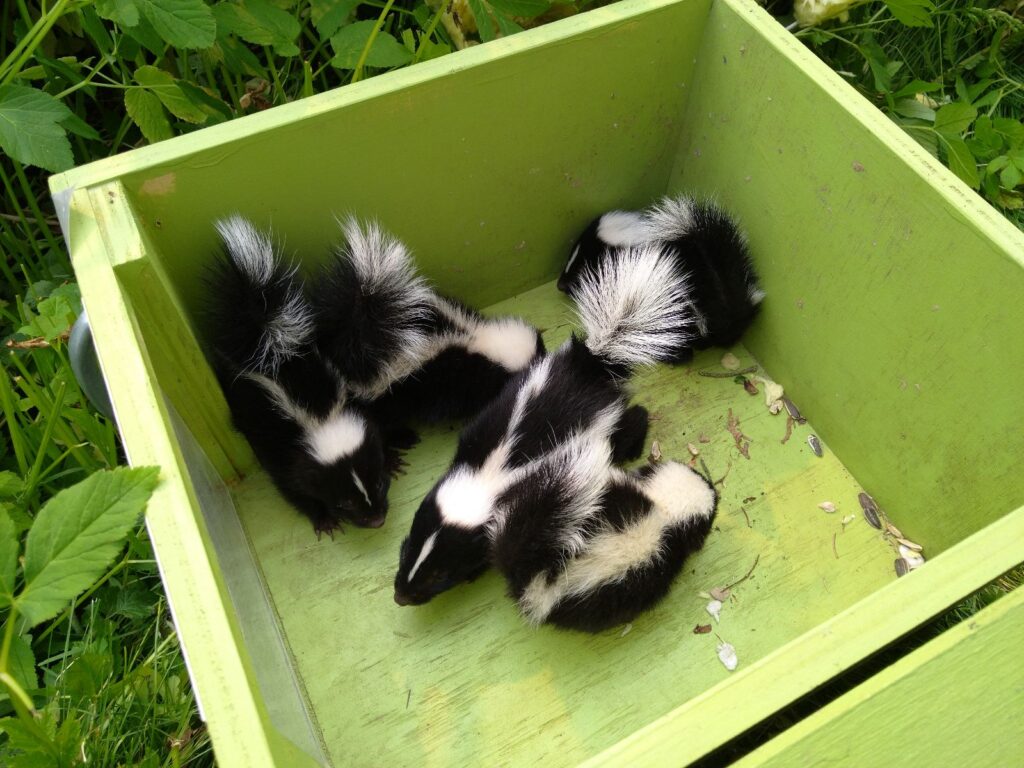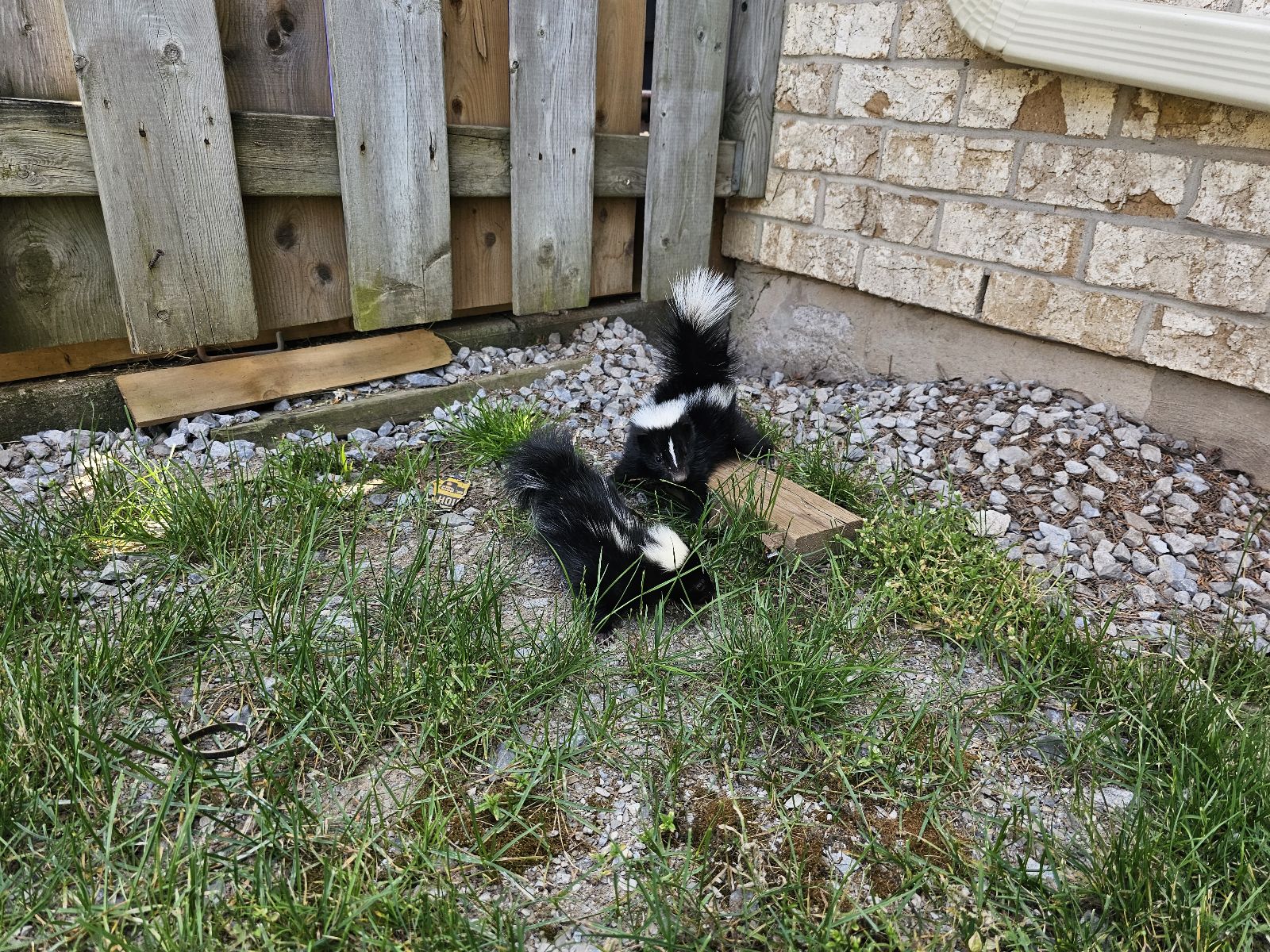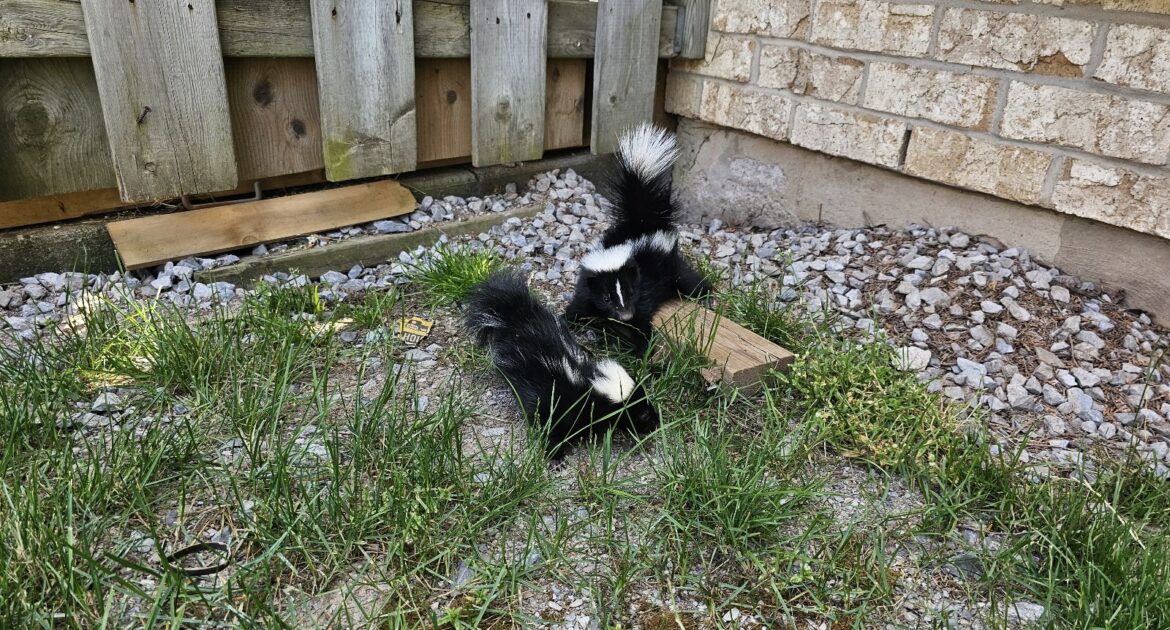Skunks are one of the most identifiable mammals, not just because of their smelly spray. They have a unique coat that is quite stunning. If a skunk has entered your space, it’s simply because it has found food, water or shelter. They are just trying to survive. More wildlife is moving into urban areas as they are being pushed out of their own habitats. That doesn’t mean you want to share your yard with skunks. They carry parasites and diseases. You or your canine BFF may end up covered in the noxious spray. Here are some things to know about these animals and how to get rid of skunks.
Skunks Are Immune to Snake Venom
Rattlesnakes may not be a problem in Canada, but if they were, a skunk might make the rattler its dinner. Skunks, like the mongoose and the opossum, are immune to snake venom. Wondering what do skunks eat in the summer? They also like cockroaches, rats, mice, termites and wasps. Skunks can be good pest control, but they aren’t the best roommates.
Skunks Attack Bee and Wasp Nests
Skunks are nocturnal animals with very strong claws that they use to dig up insects. One particular type of nest they like is wasps and bees. Skunks will eat both larvae and adults. They may even swat wasps down in the air. In the fall, you may find skunks enjoying the fruits in your garden. They are omnivorous animals that will change their diet as necessary.
Skunks Have Poor Eyesight
Skunks may approach humans that are sitting or standing still because they are very nearsighted. Their sense of smell is heightened, as is their sense of hearing. Just because you see a skunk does not mean that you will get sprayed. A skunk will give a warning before spraying. They only spray when highly threatened. When a skunk releases its spray, it takes 10 to 14 days to replenish the supply, leaving the skunk with a lack of defence.

Skunks Nest Under Structures
Skunks prefer to make their homes in hollowed-out trees or abandoned animal burrows. They also like to make nests under porches or other structures on your property. In a pinch, a skunk will burrow into the ground to nest. Skunks are solitary animals, but in the winter, a group of them called a surfeit, may be drawn together to stay warm. They don’t hibernate, but they do become less active in the winter. During mating season, skunks are more social. They may have litters of one to seven babies starting in April through late June.
Identify Skunk Damage to Your Home and Garden
You may smell a skunk before you see it, but that doesn’t necessarily mean one has taken up residence. The signs that a skunk is making itself comfortable in your yard or home are holes in the lawn. These holes are usually cone-shaped and maybe three to four inches deep. Skunks will raid your trash cans, much like raccoons. The lower plants in your garden may be disturbed. Skunks cannot reach vegetation that is very high off the ground. Skunks can damage your property by digging around the foundation or chewing through wood decks or patios.
How To Handle Skunks on Your Property
Skunks are hazardous to humans and domestic pets. The skunks carry rabies and other diseases. Professional skunk removal in Barrie is always recommended. A skunk’s scratch or bite can cause an infection. A skunk’s spray can cause temporary blindness and will be very difficult to remove from your clothes and skin or your dog’s coat. Contact Skedaddle Humane Wildlife Control for assistance with skunk removal.




